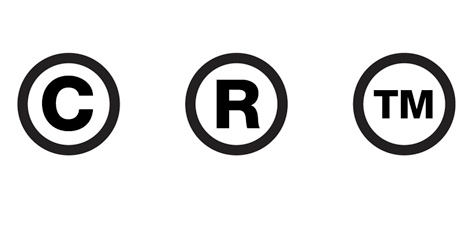A follow on from my previous article: “Intellectual Property – Libertarianism’s big mistake?”
As I argued in my previous article, the argument for intellectual property rights (IPR) is normally based on the empirical claim that they are a good idea for pragmatic reasons. It is argued that they provide incentives for individuals to come up with innovative ideas and inventions.
After dismantling this perspective in my last article, I believe that it is also useful to tackle the moral argument for IPRs as well. However important the idea of ‘incentives’ is for supporters of IPRs, the core of the issue is an ethical question: is it fair to let people steal each other’s ideas?
The best way to secure a theoretical and moral backing to IPRs is to extend popular theories that justify property rights so they can be applied to intellectual property. I believe that there are two separate ways property can be justified, and I shall deal with them in the context of IPRs.
John Locke developed three principles for the just acquisition of property. The second two were pretty simple – being freely given property, or finding abandoned property. The first principle is the labour theory of property, where the exertion of labour upon natural resources means that the exploited resource (and anything it creates) is the property of the person that works on it. Basically, if you work the land, you are entitled to the fruits of your labour – a mainstream idea in modern society.
People often transfer this argument to ideas and innovations. If you came up with them, they are yours. Though I sympathise with this line of thinking, one must be careful when expanding property rights to mental productions and thoughts. Various implications that could arise from taking this to its full extent can even be left aside. If someone hasn’t actually ‘stolen’ your idea – and has simply subsequently developed it separately - do you really have the right to tell them that you ‘own that idea’?
The issue with applying labour mixing theory to ideas is that it just does not really work. Locke talked about mixing your labour with natural resources. Without meaning to devalue the importance of thought, neither element is involved when coming up with ideas (any ‘resources’ are metaphorical, and, at least, are not natural resources). Although simply asserting this does not sound too convincing, it does mean that our most common justification for property does not apply to intellectual ‘property’.
Another possible justification for IPRs is also worth mentioning. Rather than explaining exactly why we have a claim to our ideas, you could argue that allowing people to replicate without constraint both devalues your ideas and anything that you may produce from them. By stealing ideas, are we harming those that created them?
I argue no. For property to be stolen, someone has a possession taken from, and is left without property. This evidently counts as a type of harm. Contrastingly, when ideas are ‘stolen’, they are only copied, and therefore are not taken from the possession of the original ‘owner’.
It can be argued that the harm principle does apply here too. Copying of ideas makes them less valuable and the uniqueness of the original idea is undermined. This is not an unfair point. However, this idea implies that anything that undermines the value of another’s property counts as harm. This idea is neither realistic nor fair, if only because values of products are constantly changing due to human action.
To me it seems that the morals underpinning IPRs are blurry. People feel attached to them, as having someone ‘steal your idea’ can be annoying and frustrating. As often happens in modern politics and society, we are caught in a place where an idea is accepted but not fully or consistently enforced. We have IPRs, but not to the extent that moral support for them implies is necessary.
Libertarians have to choose whether to be sceptical of IPRs, or to accept the moral argument for them. I believe the implications of the latter are problematic, as they involve trying to treat the mental and ‘the world of thought’ in a way that has previously only been applied to the physical world and tangible objects.
This would create incredibly far-reaching changes in ways that I believe would undermine principles surrounding property rights in the first place. If IPRs really are a moral force, they are one that could end up working against actual property rights. They are, to me, a destructive paradox.

